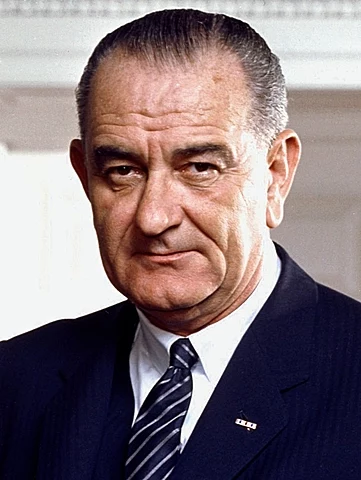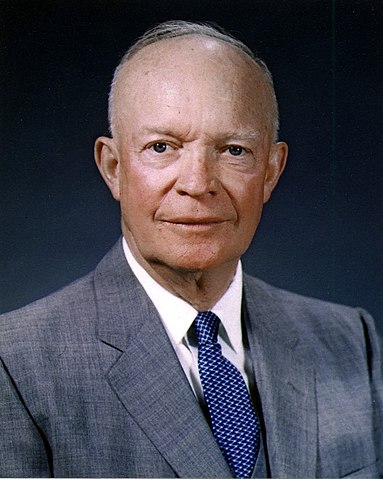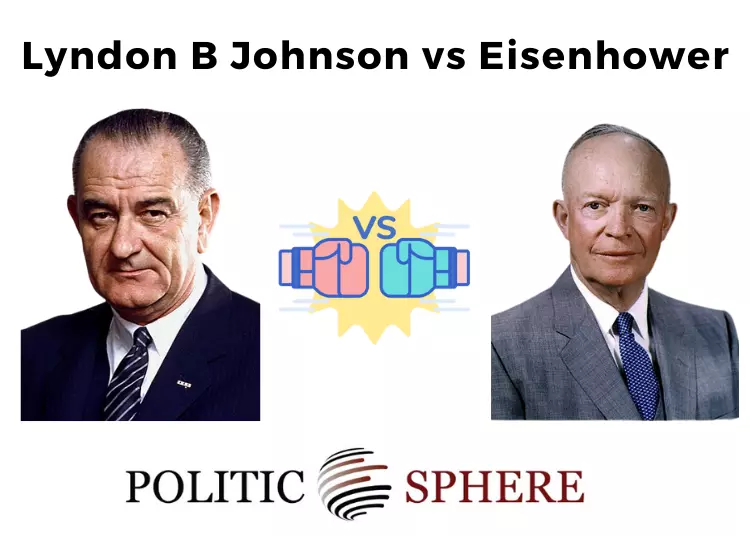Lyndon Baines Johnson (LBJ), the 36th US president, and Dwight David “Ike” Eisenhower, the 34th US president are known for forming “an exceptional alliance” in relation to the Vietnam War and other governance issues. These former national leaders showed the true nature of how a partnership works between a predecessor and a successor if two parties are willing to collaborate.


It was noted that “When Lyndon Johnson found himself suddenly and unexpectedly President of the United States on November 22, 1963, the person he first turned to for serious counsel on handling his new responsibilities was not one of the Kennedy advisers, nor an old friend from the Senate, nor one of his Texas cronies, but Dwight Eisenhower, the Republican former President” [Source], thus showing a deep connection between these iconic leaders. LBJ defended his alliance with Eisenhower when certain parties tried to wedge a rift between them and they both agreed to continue working together.
Political analysts posit that president Johnson, “like Kennedy before him, demonstrated impressive political savvy by including Eisenhower’s advice in determining policy” [Source]. Instead of engaging in political bickering which is done by many presidents towards those who came before them, Johnson “forged a strong bipartisan relationship with his predecessor, appealing to Eisenhower both as a friend and a sage”. It is reported that he would communicate with Eisenhower at the White House or over the telephone. These two had different war strategies but Johnson benefited a lot from Eisenhower’s opinions, and since he was a General, Eisenhower gave Johnson war experience methods and wisdom. This was very important to Johnson because he was faced with the Vietnam War.
Johnson found himself as a president after the assassination of Kennedy and was forced to carry out the presidential duties. He immediately implemented Kennedy’s policies which included a civil rights bill and a tax cut in-order to grow the economy [Source]. He also urged the Americans “to build a great society, a place where the meaning of man’s life matches the marvels of man’s labor”. His efforts were rewarded with a 61% victory in the 1964 elections with the widest margin in American history pegged at 15 000 000 votes.
He pushed for the Great Society program which was in the following sectors: aid to education, attack on disease, Medicare, urban renewal, beautification, conservation, development of depressed regions, a wide-scale fight against poverty, control and prevention of crime and delinquency and removal of obstacles to the right to vote. Under his administration, the country made progress in space exploration with three astronauts landing on the moon. But he experienced racial tensions in the ghettos and a crisis in Vietnam. He limited bombing in North Vietnam in a bid to trigger negotiations but he passed on before his strategy had produced any results.
Eisenhower, on the other hand, was a great achiever when it comes to military victories. He is remembered for being a commander who led many forces to victory in Europe during World War II, negotiated a truce with Korea and worked hard to resolve tensions of the Cold War. In terms of civil rights and support rendered for minority groups, he called for the desegregation of the education sector and the armed forces. He wrote that “There must be no second class citizens in this country” [Source].
He was too much focused on world peace and closely watched the progress of his “atoms of peace”. He left office in January 1961, but before leaving the high throne, he noted the value of great military strength in a country such as the US and the need for sufficient military personnel together with the necessary hardware. But he did warn that a continued pursuit in military strength and military expenditures “could breed potential dangers to” the Americans’ way of life.
An up-close eye between Johnson and Eisenhower can see that the former was a president who focused on domestic policy more and only engaged outside with the Vietnam crisis, while the latter showed military skills in his reign and wanted to instill world peace and that is why Johnson wanted advice from the General. Their time in office was highly influenced by one’s background and the issues which were happening at that time.
Was Eisenhower a good president?
Eisenhower was a great president and did a lot of good things for the country. He was able to forge a strong bipartisan relationship with Johnson, and he was also able to get a lot of things done during his time as president.
Was Lyndon B Johnson a good president?
Johnson was a very effective president who focused on domestic issues more. He was able to craft a relationship with Eisenhower and implement many of his ideas into fruition. Johnson also worked hard to improve civil rights in the United States.
Sources
Sources for LBJ and Eisenhower information include:
Snodgrass, Mary Ellen (2013). “Lyndon B Johnson” In The World Book Year Book. Chicago: World Book Inc., 2013. – “Biography – Dwight D. Eisenhower”, The White House, accessed April 14, 2017. http://www.whitehouse.gov/about-the-white-house/presidents/dwight-d-eisenhower – “Lyndon Baines Johnson (1908–1973)”, History, Art, & Archives U.S. House of Representatives;






































